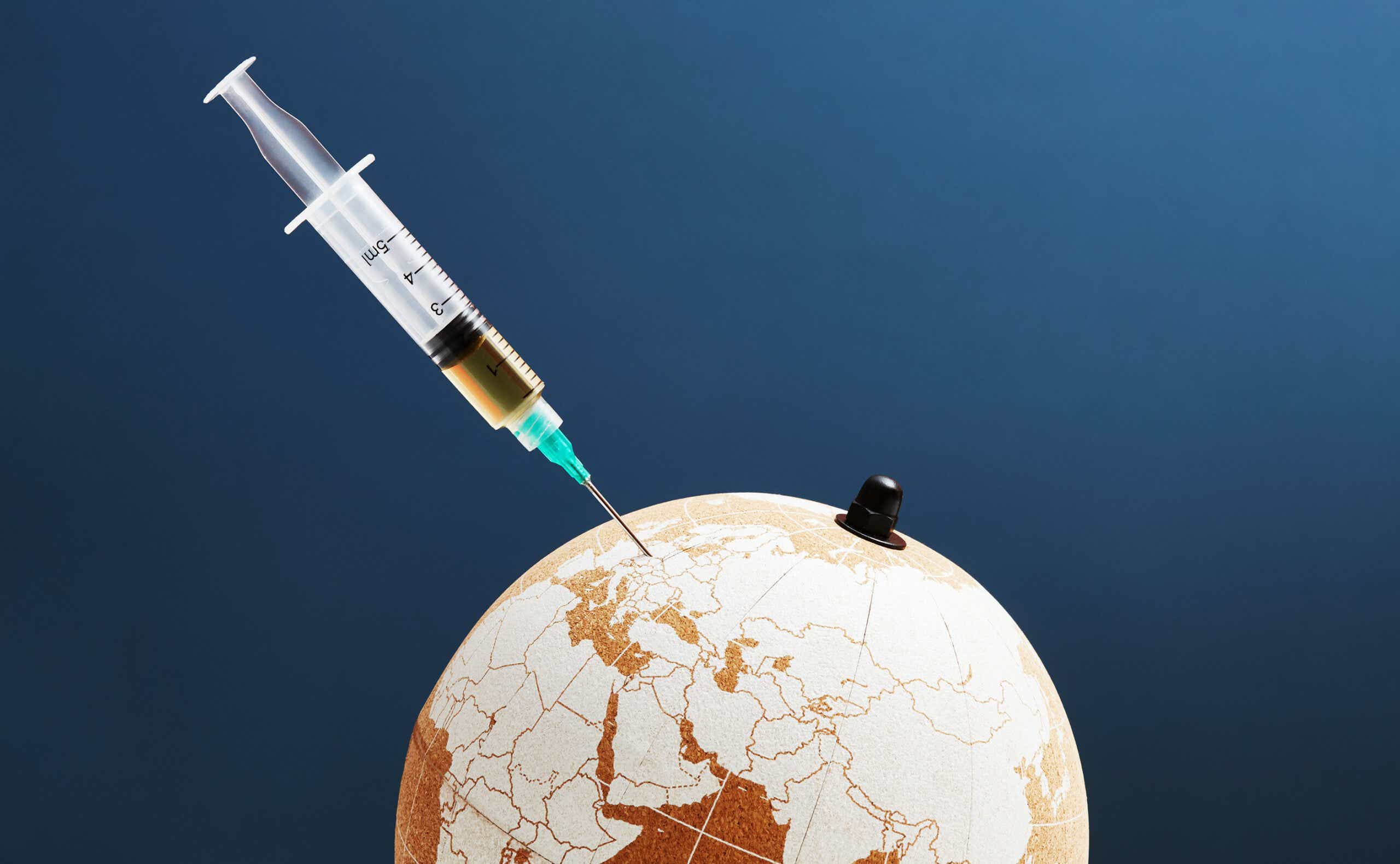The scientists behind Pfizer’s Covid-19 vaccine believe a shot to prevent cancer could be here by the end of the decade. Here’s what we know about it so far and what cancer researchers have to say about its potential.
Could a cancer breakthrough be just around the corner?
The German power couple of Uğur Şahin and Özlem Türeci, the scientists who co-founded BioNTech, said this week that the research that helped them create their Covid-19 vaccine could propel the development of a cancer vaccine too.
The researchers had mostly been focused on using their mRNA technology to produce cancer treatments. But when the pandemic struck, they pivoted and set to work on what they called Project Lightspeed, bringing a Covid vaccine to market in a matter of months.
In an interview on the BBC, the couple said that the experience of developing the Covid vaccine “gives back to our cancer work.” They also explained how their mRNA vaccine, which works by creating antigens within the body that prime the immune system to fight the virus, could be repurposed to target cancer cells.
“We feel that a cure for cancer or to changing cancer patients’ lives is in our grasp,” Türeci said.
Asked when they thought a vaccine could be widely available, Şahin said, “before 2030.”
Where do other cancer vaccines stand?
Scientists have been chasing a vaccine to protect people from cancer for years, with only limited success. But recently, there’s a renewed sense of optimism in the field, says Keith Knutson, Ph.D., a professor of immunology at the Mayo Clinic, who’s been hunting for a cancer vaccine since the mid-1990s.
Over that period, interest in a cancer shot has “waxed and waned for a variety of different reasons,” he tells KCM. But many of the hurdles that scientists once faced have now been cleared because of new technological advances, including the rise of mRNA vaccines, he says.
One critical challenge in developing a cancer vaccine is finding a target, something specific to cancer cells, that the immune system can be trained to attack, Vinod Balachandran, Ph.D., a surgeon-scientist specializing in pancreatic cancer and cancer vaccines at Memorial Sloan Kettering Cancer Center, tells us. Researchers have recently narrowed in on what are called tumor-specific antigens (proteins that are found only on cancer cells) and are creating formulations that would help the body recognize those antigens as foreign and reject them.
One vaccine that’s being tested targets the tumor-specific antigen MUC-1, which has been found in some breast, colon, and prostate cancers. Other vaccines, including one designed by Dr. Knutson, seek out an antigen known as HER2 — a molecule found in about 25 percent of breast cancers.
Another exciting area of focus is the development of neoantigen vaccines. These are personalized shots designed by analyzing a patient’s unique cancer cells to find the antigens that distinguish those cells from normal cells. One way to rapidly develop these individualized treatments is through mRNA technology, says Dr. Balachandran, who is currently studying this type of vaccine.
He teamed up with Şahin and Türeci to develop a neoantigen vaccine for pancreatic cancer using mRNA. He began treating patients with the shot back in 2019, just months before the pandemic and about a year before millions more Americans would become injected with an mRNA vaccine. Moderna and Merck also recently announced they’d be working together to develop a melanoma vaccine using a similar method.
“We think this could provide an important blueprint on how you can use mRNA to custom make cancer vaccines for specific patients,” Dr. Balachandran says.
And Dr. Knutson believes that there’s a possibility we could see at least one of these cancer vaccines win FDA approval “within the next decade.”









